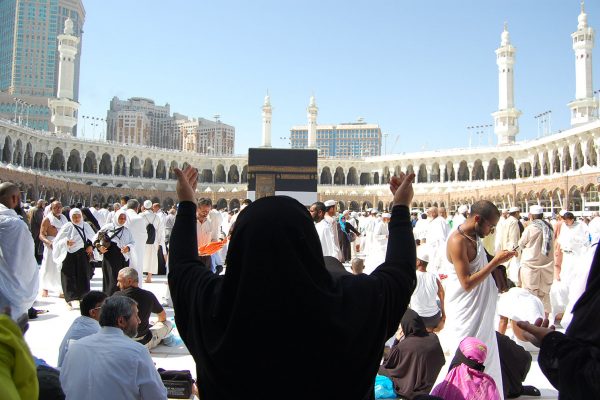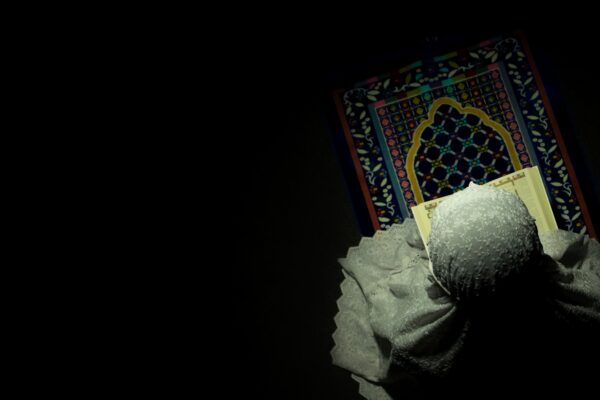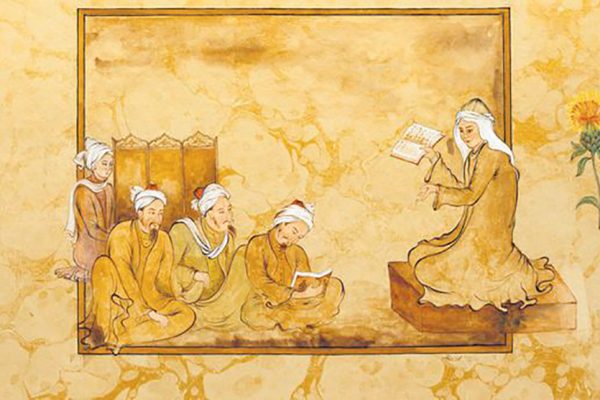Islamic literature and tradition exude profound sentiments of mercy and compassion, interminably affirming that a community devoid of clemency is one bereft of faith. My Islamic upbringing and education have instilled within the depths of my being the power of empathy and compassion. It evokes a peace throughout the tumult of this life knowing that my creator has elevated my status as a woman and that my value is quantified by my deeds and sincerity, as opposed to a biological component beyond my corporal limitations.
Yet despite this, we find in our community those who vehemently and candidly profess the shahadah, and in the still of the night, forsake its very essence. Domestic and gender-based violence is a dismal reality for too many. It is manifest in various forms and throughout numerous communities, cultures, and religions, including the Muslim community. It is a reality birthed from bestial tenets, following no religion or any vestige of humanity.
Moreover, rather than offering curative avenues for victims, public discourse has been constrained to the question of permissibility and impermissibility according to Islamic law. Within our own community, survivors are exiled and erased from the conversation, as if their trauma is their sin to atone. The west instrumentalizes their misfortune in order to bolster their Islamophobic tropes.
In New York City, the Muslim community has emphatically taken tangible strides to shift the dialogue from these covetous incentives towards the welfare of the survivors by upholding the Quranic injunctions for justice. Early last year, the first Muslim Women’s Shelter in New York City, Asyiah Women’s Center, founded by Dania Darwish and Mohammed Bahi, opened its doors. In addition, this past Ramadan, Imam Khalid Latif, the Executive Director and Chaplain (Imam) for the Islamic Center at New York University (ICNYU), began fundraising to build an emergency shelter for abused women in New York City.
The Messenger of Allah, peace and blessings be upon him, said,
The parable of the believers in their affection, mercy, and compassion for each other is that of a body. When any limb aches, the whole body reacts with sleeplessness and fever.”
[Sahih Muslim]
The Muslim community here in New York City have allowed these words of the Prophet (PBUH) to reverberate throughout their lives and have taken them as a divine directive to raise their voices. In August 2018, Dania Darwish and Mohammed Bahi, the Executive Director of Muslims Giving Back, came together to open Asiyah’s Women’s Center. It is the first shelter geared towards Muslim women in NYC.
The center includes six bedrooms, twenty beds, and a fully stocked kitchen, and a living room. Sustained by all female staff and volunteers, they endeavor to connect survivors with a range of resources, including medical and legal services, job opportunities, and English language courses. The center aims to change public perception of the epidemic of domestic and gender-based violence, and while the center is meant to be a transitory respite, offering refuge for seven days, staffers are authorized to make exceptions on a case by case basis.
Bahi and Darwish were disillusioned by the community’s apathy towards victims. They were particularly disconcerted by religious leaders counseling women to solely pray or return back to their abusers out of duty to family and God. Not to mention, the present political climate of rampant Islamophobia and bigotry has created unusually hostile circumstances for Muslim survivors in existing New York City shelters. Thus, endowed through donations and the founder’s personal expenses, Asiyah’s Women’s Center surged through the clouds of a seemingly indelible monsoon as the first ebullient rays of compassion and humanity.
A Culture of Silence: Domestic Violence and Sexual Abuse in the Muslim Community
Furthermore, during Ramadan of 2019, Imam Khalid Latif has been vociferously fundraising to construct an emergency shelter for abused women in New York City which they will call Noora House. It will be the first project by Pillars of Peace. Pillars of Peace is an organization established by Imam Khalid Latif, and co-founders Nabah Ikram and Karim Ahmed, members of ICNYU, in order to address a gap in appropriate residential services for Muslim survivors of domestic violence. Their goal, as seen on their Launchgood page, is to raise $700,00 to procure and fully renovate a properly-zoned and permitted building that will serve as an emergency shelter for abused women in New York City. They surpassed their initial monetary goals by the conclusion of Ramadan.
Throughout Latif’s earnest khutbahs and posts, he has reiterated that for fifteen years he has encountered women of all backgrounds seeking refuge from the depraved claws of abuse. However, he was cognizant of the fact that for every woman he has assisted, there are hundreds of more in need. For years Latif has been an advocate for these women, educating the ummah and aiding those who turn to him. He has actively stated on several occasions:
Islam prohibits domestic violence. It becomes a community responsibility to denounce it and provide resources for survivors.”
Starting with Noora House, Pillars of Faith hopes to create a complete and accessible set of resources focusing on domestic and gender violence. They envisage a series of residential facilities which provide emergency shelter, transitional housing, and safe houses supplemented by educational training programs.
Our silence when it comes to our sisters will not dissipate into the void of the cosmos. It will be written and weighed unless we emulate the convictions of the members of ICNYU and the founders of Asiyah’s Women’s Center. The National Coalition Against Domestic Violence states:
On average, nearly twenty people per minute are physically abused by an intimate partner in the United States. During one year, this equates to more than 10 million women and men.”
They go on to state as well that: “1 in 4 women and 1 in 9 men experience severe intimate partner physical violence, intimate partner contact sexual violence, and/or intimate partner stalking with impacts such as injury, fearfulness, post-traumatic stress disorder, use of victim services, contraction of sexually transmitted diseases, etc. On a typical day, there are more than 20,000 phone calls placed to domestic violence hotlines nationwide. Intimate partner violence accounts for 15% of all violent crime.”
In the midst of these atrocious statistics, we must remember that our sunnah dictates:
“None but a noble man treats women in an honorable manner. And none but a dishonorable man treats women disgracefully (Sunan Tirmidhi).”
“The most perfect of the believers in faith are the best of them in moral excellence, and the best of you are the kindest to their wives (Sunan Tirmidhi).”
Say: ‘My Lord has commanded justice…’
[Surat Al-A‘raf, 29]
In addition to the myriad of Quranic ayahs and ahadith, we are enjoined to act with gentleness, empathy, and affection towards our spouses. We are commanded to act justly when we witness those rights being encroached upon. However, statistics and narratives manifest an insidious reality that should be antithetical with the morals of our Ummah. With the words of Allah and His messenger, we must be emboldened to embrace survivors, and to restore their dignity and confidence in love. Abuse, whether physical, emotional, financial or spiritual, is an avaricious entity that seeks to fracture every being and relation in its path. It thrives on the reticence of spectators.
But it will no longer flourish because we will unremittingly exemplify the prophetic words of countering oppression:
“Whosoever of you sees an evil, let him change it with his hand; and if he is not able to do so, then [let him change it] with his tongue; and if he is not able to do so, then with his heart — and that is the weakest of faith (Sahih Muslim).”





